 In 2003, my world turned upside down when my daughter, Jenny, was hit head-on by a drunk driver going the wrong way on a California freeway. Five years later, I wrote an article about Jenny’s journey and how she turned a major head injury into a life worth living. Another eleven years have passed, and I have watched my daughter live these words – You are what you think about and focus on.
In 2003, my world turned upside down when my daughter, Jenny, was hit head-on by a drunk driver going the wrong way on a California freeway. Five years later, I wrote an article about Jenny’s journey and how she turned a major head injury into a life worth living. Another eleven years have passed, and I have watched my daughter live these words – You are what you think about and focus on.
Jenny’s sixteen-year odyssey is powerful. If you find yourself frustrated, angry, discouraged, resentful, sad, feeling less than, or any number of other difficult emotions, then this is a true story for you.
After a struggle with drugs, Jenny got clean, changed friends, and was one semester shy of graduating with a bachelor’s degree. All that came to an abrupt halt when she was hit by the drunk driver.
In May of 2012, Jenny’s first five years as a brain trauma survivor ended when she graduated, not just with a bachelor’s, but with her master’s degree in speech therapy, a skill she had learned to value as she regained her ability to speak after her accident. She set out for a new life, in a new city, at a new job, helping other people put their lives back together.
On that amazing day, it was wonderful to sit in the auditorium and watch her walk across the stage. It was overwhelming to see all the people who had come because they loved our daughter and wanted us to know what a successful job we had done raising her. It caused me to do some serious introspection. We did do a good job of raising our children; not a perfect or pain-free job, but the best job our knowledge allowed. We know this from the fruit – seven loyal, kind, adults with integrity.
But when I think of Jenny, I know that her recovery from an accident that left her unable to walk, think of the word for shoe, orange, etc., track conversations, manage social cues, or remember anything, was due to her preparation for life. Let me share her secret for living well, no matter the circumstances.
Take control of your thoughts!!
When I was at Jenny’s home the week of her graduation, I noticed quotes on the walls in every room. They were the fodder for her recovery; they showed the core of who she had decided she wanted to be long before her accident. She had begun choosing her thoughts in her late teens. This didn’t prevent her from taking a hard road to adulthood, but it helped her stay alive and hang on to values on how to treat others until she could put into practice what she wanted her life to look like.
After Jenny’s accident, these thoughts, which she had seen and read every day of her growing up, got her through. They had become part of the fabric of her thinking. Brain trauma is hard. It makes normal living a lot of work, but to finish college and go on to have a successful career helping others, well, that was a miracle of persistence, faith, and the beliefs she had fed herself for decades.
Let me share some of what Jenny had posted on her walls.
- If you correct your mind, the rest of your life will fall into place.
- Life is not about finding yourself; life is about creating yourself.
- “When I started counting my blessings, my whole world turned around.” Willie Nelson
- When we strive to become better than we are, then everything around us becomes better also.
- Live generously, love passionately, and be all that you want to see in the world. Shine your awesome love and light on all around you with no strings attached. Do it just because it’s who you are. Love is your nature. Sow it in your mind. Plant it in the world and enjoy the thrill of seeing love multiply and spread. All for love and love for all.
- I’d always heard that your entire life flashes in front of your eyes the second before you die. First of all, that one second isn’t a second at all – it stretches on forever like an ocean of time. I guess I could be pretty pissed off about what happened to me, but it’s hard to stay mad in a world where there’s so much beauty. Sometimes I feel like I’m seeing it all at once, and it’s too much; my heart fills up like a balloon that is about to burst. Then I remember to relax and stop trying to hold onto it, and the beauty flows through me like rain, and I can’t feel anything but gratitude for every single moment of my little life. You have no idea what I’m talking about, I’m sure, but don’t worry, you will – someday. (From the movie American Beauty)
- “I’ve learned from experience that the greater part of our happiness or misery depends on our dispositions and not on our circumstances.” Martha Washington
- Turn your face to the sun, and the shadows fall behind you. A Maori Proverb
During my almost 74 years, I have learned that we have a choice in life. We can choose how we are going to react in any circumstance. I recall reading Victor Frankel’s book, Man’s Search for Meaning, as a teen, and I have never forgotten him saying “Everything can be taken from a man but one thing: the last of the human freedoms—to choose one’s attitude in any given set of circumstances, to choose one’s own way.”
Despite facing an addiction in those early days, Jenny had chosen to look at life through a lens of light. She was working diligently to get control of her life by choosing to embrace happiness no matter how hard the day. She was making every effort to control her thoughts!
Jenny didn’t engage in negative conversations. She wouldn’t verbalize the bad but chose to talk about the good. After the accident, she would not say an unkind word about the other driver. She said that she wished him well, that she hoped for joy in his life. She knew the struggle he was facing, one she was conquering. She wasn’t going to waste one minute on anger. She embraced what she had posted on her walls.
Change your thoughts, change your life.
Controlling your thoughts can change your life completely. We all can choose our response in every situation. Accepting personal responsibility for our lives and not blaming others, money, time, or circumstance makes all the difference in the quality of our lives. When you give up being a victim, you free yourself from whatever has you bound.
Watch your thoughts, for they become words.
Choose your words because they become actions.
Understand your actions, for they become your habits.
Study your habits, for they will become your character.
Develop your character, for it becomes your destiny. Lao Tzu
Jenny has proven this to be true!
I, like you and my daughter Jenny, must work daily to maintain this way of thinking and living. It is a practice, and it takes work every day. My walls are hung with things I want to understand and live better. Next week I will share some of those thoughts, beliefs, and quotes with you. I hope you will take some of the words of wisdom that Jenny and I choose to look at each day and put them on your walls because what you surround yourself with, what you choose to think about and focus on, does make ALL the difference.
You Are What You Think About
and Focus On
Today Jenny works in senior and rehab centers helping others who have experienced trauma learn to speak again. She and her husband, Brett, have an online Christian ministry, Humans of Surrender, helping those who struggle with addiction to find help and embrace God. They have a beautiful church on their wooded property called Grace Wood where everyone is welcome. From traumatic brain injury to a life of service and love is an amazing journey proving once again, that when you control your thinking you can change your life. Jenny is adamant about one other thing and I agree – When you add God and Christ to the mix of managing your thoughts, you have better outcomes. : )



 I bought Mom a beautiful fake flower in a glass bowl. My mother loves flowers, but we can’t have any living plants in her room because she pours water on them continually. There are some problems with that.
I bought Mom a beautiful fake flower in a glass bowl. My mother loves flowers, but we can’t have any living plants in her room because she pours water on them continually. There are some problems with that.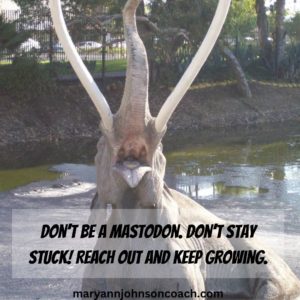 I have wonderful friends. Some are past mentees, past mentors, and class attendees, and some are past teachers of mine. We have remained connected. Just this week one of those friends reached out. We had a wonderful conversation which I will share in an upcoming article. But she said something I want to share today. She said words to this effect – I love reading your articles. I love how you share your life; and how transparent you are. It helps me in my life.
I have wonderful friends. Some are past mentees, past mentors, and class attendees, and some are past teachers of mine. We have remained connected. Just this week one of those friends reached out. We had a wonderful conversation which I will share in an upcoming article. But she said something I want to share today. She said words to this effect – I love reading your articles. I love how you share your life; and how transparent you are. It helps me in my life.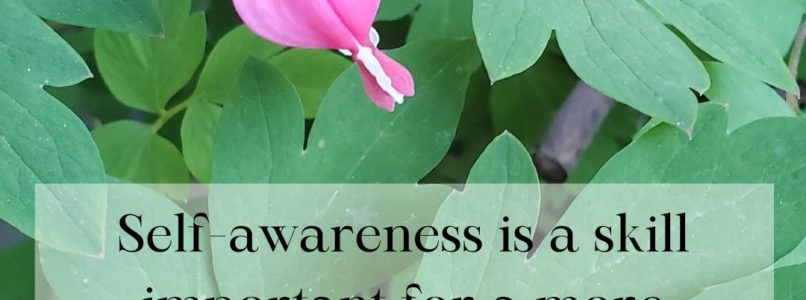
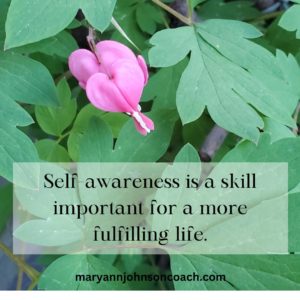 Last spring, I was listening to a talk at church and the speaker gave a statistic that I found intriguing and a bit surprising. He said that most people think they are self-aware but that when tested only about 15% are. That is a low number of people who really know where they are emotionally, at any given time.
Last spring, I was listening to a talk at church and the speaker gave a statistic that I found intriguing and a bit surprising. He said that most people think they are self-aware but that when tested only about 15% are. That is a low number of people who really know where they are emotionally, at any given time.
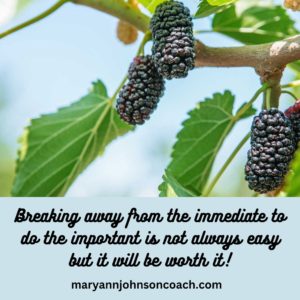

 A few months ago, I had a conversation with one of my daughters on the issue of pride vs pridefulness. It was amazing and insightful. I can’t do justice to the topic in one article so I will cover it in the following three articles.
A few months ago, I had a conversation with one of my daughters on the issue of pride vs pridefulness. It was amazing and insightful. I can’t do justice to the topic in one article so I will cover it in the following three articles.
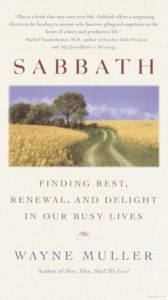 I am so glad to be back. I have missed you all. I loved the break, but I missed sharing my thoughts and ideas. : ) Here is something that happened to me during my vacation from writing.
I am so glad to be back. I have missed you all. I loved the break, but I missed sharing my thoughts and ideas. : ) Here is something that happened to me during my vacation from writing.
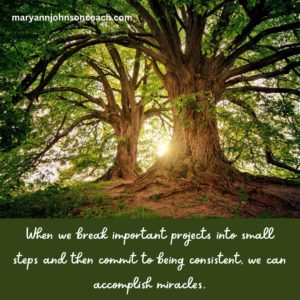 Four years ago, I wrote an article detailing how
Four years ago, I wrote an article detailing how 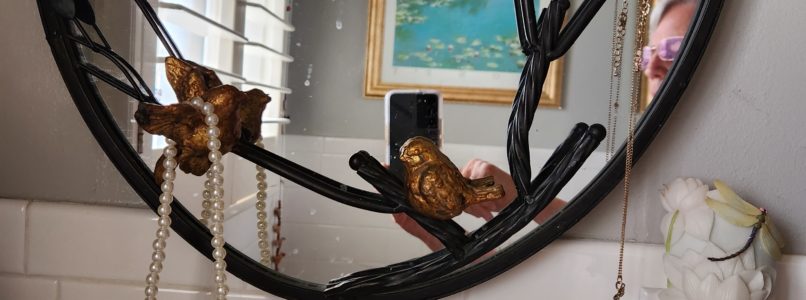
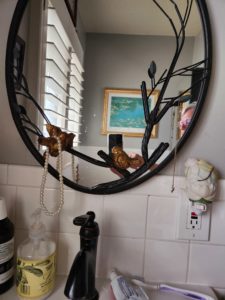 I like things my way.
I like things my way. 
 I want you to know that I am over the moon happy to write this post. It is, however, very transparent, humbling, and not cool if you are ‘the expert’. : ) BUT it is so indicative of how we learn, grow, and have better, more meaningful lives!
I want you to know that I am over the moon happy to write this post. It is, however, very transparent, humbling, and not cool if you are ‘the expert’. : ) BUT it is so indicative of how we learn, grow, and have better, more meaningful lives!